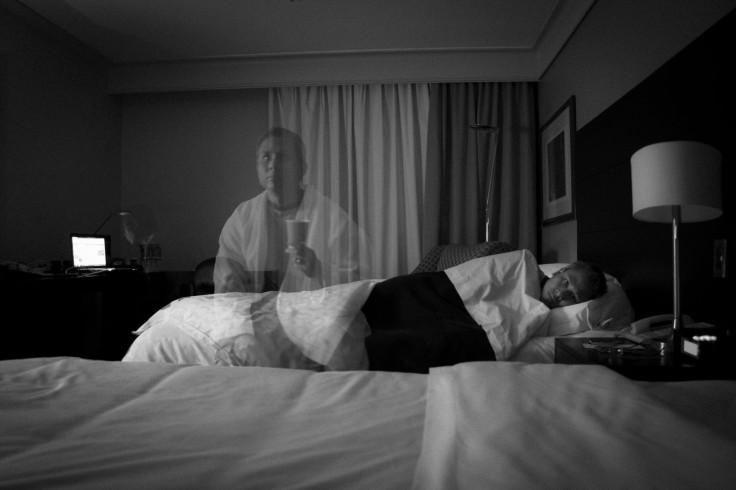9 Sleep Tips To Help You Feel More Rested

Sleep is one of the most natural and best activities a person can do for his or her mental, physical, and emotional well being. Lack of sleep can lead to a number of problems including depression, fatigue, increased risk of sickness, and premature aging. The Center for Disease Control and Prevention (CDC) says that, on average, adults need seven to nine hours of sleep per night. If you're having trouble falling asleep and staying asleep, counting sheep might not always be the answer. Take a look at some of our helpful tips to help you fall asleep faster.
1. Reduce your caffeine intake
This one might seem obvious, but caffeine doesn't necessarily mean coffee. It could be that piece of chocolate cake you had for dessert, or that glass of coke you had with dinner. In an interview with ABC News, Dr. Michael Breus recommends that you stop any type of caffeine intake by 2 p.m. "Most people are not aware that caffeine has a half life of up to eight hours and can affect not only your ability to fall asleep, but also the quality of sleep you are getting," said Breus.
2. Sex
Sex helps to release endorphins, which acts as a sleep aid. Dr. Laura Berman, the director of the Berman Center for Women's Sexual Health, told The Situation with Tucker Carlson, "You get into bed. You're stressed. You're uptight. And then you start getting stressed about not being able to fall asleep, and that keeps you even more sleepless. Instead, you should try having sex. It will help you sleep, because it releases endorphins and you feel better about yourself."
3. Drink a cup of warm milk
Milk has been shown to have sleep enhancing properties. Scientific studies are not conclusive as to why milk can help with insomnia. Some research has shown that tryptophan has sleep-inducing properties, but the amount of it that is found in milk is so small that it would not have a substantial effect. Other research claims the mere psychology of drinking a warm glass of milk helps to put a person to sleep.
4. Counting Backwards
By counting backwards, you distract your brain from thinking about anything else; your brain is only focused on the numbers. "It's mathematically so complicated you can't do anything else, and it's so doggone boring you are out like a light," Breus said.
5. Imagine A Peaceful Setting
Any type of mental distraction that takes away from the stresses of your day can help induce sleep. In a 2002 study, three groups of patients were told to engage in different activities to fall asleep. Research found that the patients who were asked to imagine a relaxing and calming scene fell asleep faster than those who were instructued to count backwards.
6. Start A Sleep Schedule
According to Mayo Clinic, developing a sleep schedule is key to preventing and helping insomnia. "Go to bed and get up at the same time every day, even on weekends, holidays, and days off. Being consistent reinforces your body's sleep-wake cycle and helps promote better sleep at night," Mayo Clinic says. If you're still not tired, getting up and doing something else might help you fall asleep. The key point is not to agonize over your inability to sleep.
7. Stop Using Your iPhone, iPad, Or Any Other Electronic Devices
The National Sleep Foundation found that, "Americans report very active technology use in the hour before trying to sleep. Almost everyone surveyed, 95 percent, uses some type of electronics like a television, computer, video game, or cell phone at least a few nights a week within the hour before bed." Researchers believe the artificial light in these electronics can suppress the release of melatonin, which is the hormone responsible for our sleep.
8. Limit Daytime Naps
Avoiding napping during the day no matter how tired you may feel. Napping might make you feel temporarily refreshed, but it can ruin your sleep pattern in the long run. "More people who take more than two naps a day report symptoms of insomnia at 62 percent," according to the National Sleep Foundation.
9. Buy a New Mattress
If you are not comfortable in your bed, chances are you're not going to be able to sleep. Investing in a good mattress or a new one is extremely important. The life span of a mattress is around five to 10 years. Some might last longer depending on how often and how much it had been used. If it starts to sink, or you wake up with all sorts of aches and pains, you might want to start mattress shopping.



























